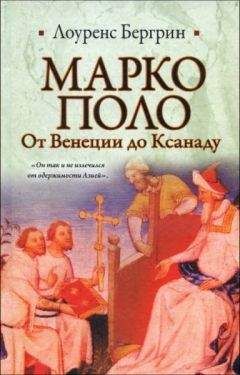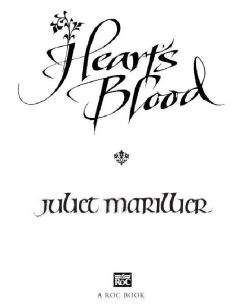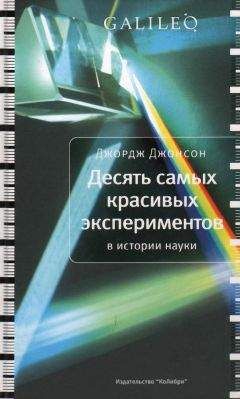Juliet Marillier - Wildwood Dancing
You’re going to have to help me, Jena.”
I nodded, misery starting to settle over me like a dark blanket. Costi was gone. Costi, who was so alive—the most alive person I knew. Costi, whom everybody loved. Watching the light sparkle on the lake water, I thought I could hear someone laughing.
“Come on, quick,” Cezar said. “We should get our story straight. We’d better practice on the way.”
I remembered that part even now: walking along the forest paths, my small hand in his not much bigger one, and the way he talked me carefully through what had happened—hoping to calm me down, I suppose. Even after ten years, I could still see the expression on Cezar’s face as he gave his account to his father. It was a heavy load for a boy just eight years old. I helped all I could, telling the same version of events as Cezar. What had happened was all jumbled up in my head, so it was good that he had explained it to me so clearly. He did not mention the game, nor did I. We confessed that we had been at the forbidden lake, playing with a raft. We told them about the tricky currents and the hands in the water. Uncle Nicolae and Aunt Bogdana were so distraught at the loss of their beloved firstborn, their shining star, that after a certain point in the story they ceased to listen.
My mother came to take me and my sister home to Piscul Dracului. After that, I did not see Cezar so often. He had become the eldest son. He worked hard at it: learning the business; accompanying Uncle Nicolae to village meetings; getting to know the running of the farm. He finished his education, 56
going away to Bra¸sov for several years and returning unrecog-nizable: a young man. I became shy of him—so tall, so big, so alarmingly solemn. So full of ideas and theories that clashed utterly with mine. All the same, I owed Cezar my life, and I had never forgotten that.
“The problem is,” I said now to Gogu, who was sitting on a leaf, practicing being invisible, “that Cezar is so difficult to be a friend to. If I could get closer to him, maybe I could persuade him to give up his talk of vengeance. But he thinks girls are an inferior breed, not suited to anything except cooking and cleaning. This winter I plan to prove him wrong on that count, at least. I’ll look after Father’s affairs so well that neither he nor Uncle Nicolae will need to do a thing.”
What’s that old saying: Pride comes before a fall?
“Don’t say that, Gogu! I thought you, at least, had faith in me.”
I do, Jena. Complete faith. Be careful, that’s all. Everything’s changing.
You said as much yourself. Change can be frightening.
“That’s why I’m glad I’ve got you,” I said. “You keep me sane, Gogu. You stop me from making stupid mistakes. Cezar had better not make any more suggestions about terriers. I simply couldn’t do without you.”
Nor I without you, Jena. We are a pair, you and I. It’s getting cold. . . .
Winter’s close. Can I ride home on your shoulder?
57
Chapter Three
Dearest Father, I wrote, we have been very busy since you went away. I will dispatch the consignment for Sibiu as soon as Uncle Nicolae can spare some men to load it onto the carts for us. I’d have preferred to arrange this myself, but the men who usually came up from the village were all occupied with shoring up the banks of the Grimwater, which recent rains had swollen to a frothing brown torrent. A river in spate was as dangerous as Dr˘agu¸ta the witch at her most malevolent—it could consume a whole village in one gulp.
The river is up, but the bridge is still passable, so the consignment should get through before the winter, I wrote. I am expecting the goods you ordered from Salem bin Afazi soon. I will make sure they are safely in storage before the weather gets any worse.
I sighed and rested my head on my hand, the neat black script blurring on the page before me. It was almost Full Moon again, a whole month since Father’s departure. The others were excited, making their preparations, counting the days, then the 58
hours, until it was time to cross over into the Other Kingdom.
All I could feel was a profound weariness. This wasn’t the first time Father had gone away, of course. But it was the first time both Gabriel and Dorin were absent at the same time as he was, and it would be for much longer than the usual buying trip. It had even been difficult to secure the services of the ever-reliable Ivan, since his own smallholding was threatened by the rising river.
There was too much to attend to—too much to think about.
I longed for a whole day on my own with Gogu and absolutely nothing to do. It was hard not to let this show in my letter. I must not worry Father; if he believed we were coping well, that would surely help him recover more quickly. Foolishly, I had hoped to hear from him by now, but no message had come.
I had expected the impossible. Constan¸ta was far away—
letters took many weeks to travel such a distance, even supposing there was someone to bring them.
Paula and Stela are helping Florica around the house, I added, and Iulia has been doing her best. These days, Iulia’s best was falling a little short of what it might be, but I didn’t tell Father that.
Now that the nights were growing longer and colder, it was a trial getting her out of bed in the mornings. She hated outside jobs like filling the wood baskets and raking out the chicken coop and feeding the pigs.
“Why can’t one of you do it?” she would whine, her nose red with cold, the rest of her face icy-pale under her rabbit-fur hat.
And I would tell her what Father would, if he were home:
“We all do our share.”
59
We are in good health, I wrote. Florica and Petru ask to be remembered to you. Father, I hope very much that your own health is improving in the warmer air of the seacoast. If you are well enough to write, it would be wonderful to hear from you. We send our fondest love. We all miss you, even Gogu.
Your affectionate daughter, Jena.
I sealed the letter, put away the quill, and replaced the stopper on the ink pot. Delivery must wait until Uncle Nicolae had a man traveling in the right direction. I hoped that would be soon.
The day before Full Moon, a cart came with Father’s goods from the east. Somewhat grudgingly, the two men who had driven the cart up to Piscul Dracului unloaded the bundles and boxes. They carried them into our storeroom, then dropped them unceremoniously on the stone floor. Paula and I had weighed out the correct payment in silver pieces some time ago and stored it in a box with a very good lock. The men tried to argue with me over the amount, but I flourished a document with both Father’s and Salem bin Afazi’s signatures on it. After a while they took the silver and left, their tempers much improved by the appearance of a smiling Tati with a bottle of ¸ tuica˘
and a cloth full of spice cakes for the road.
The rest of the day was spent checking the consignment in full and making sure everything was safely stored until it was time for each item to be sold. Fabrics had to be kept dry and protected from dust and moths; spices had to be tightly sealed and out of the light. Carpets were best unrolled and layered with padded cloth.
The chamber we used for storage was huge. We imagined it had once housed grand entertainments in the early days of 60
Piscul Dracului. But the polished marble of the floor had been badly damaged long ago, and the slender, vine-wreathed columns rising gracefully to the painted ceiling bore their share of cracks and chips. Practical shelving had been erected where once elegant lords and ladies might have sat on benches, listening to fine music.
All five of us unpacked the boxes and crates. Hard work as this job was, we loved it. It was like the best kind of treasure hunt. Salem bin Afazi’s consignments were always full of exotic surprises.
Stela found a box full of tiny glass phials and flasks filled with a variety of sweet perfumes: spicy, floral, musky, pungent.
She began to set them out in a row by color, handling each with careful fingers.
Paula had discovered books destined for the monastery near Sibiu: a most precious cargo. Now she sat cross-legged on the marble, spectacles perched on the tip of her nose, engrossed in an old text bound in dark leather.
The rest of us were working together, for there were rolled-up carpets in this consignment, and each had to be checked in its turn and set away. They were long and heavy. By the time we reached the last of them, our backs were aching.
Stela had packed away the bottles and put the box on a shelf. Now she was investigating a basket of curious toys—
wooden bees, and dragonflies, and bats, that whirred and buzzed and flapped their wings when they were pushed along.
Gogu was by her side, enthralled. His eyes bulged with fascinated apprehension. “They’re not real, Gogu,” I heard my sister say. “Not really real.”
61
“Oh, look at this!”
Iulia had begun emptying a crate of fabrics. Tati had un-wrapped the protective covering of the first bundle to check for imperfections and water damage.
“Oh, it’s so lovely, like cobweb!” Tati lifted a length of the silk cloth between her hands. It was not-quite-white—the color of a pale spring flower with the smallest hint of sunshine to soften its stark purity. The cloth was exceptionally fine and clung to Tati’s fingers. The whole surface was closely embroidered with a pattern of butterflies done in the same subtle color as the background, so they showed best when light shone through the sheer fabric. Here and there an eye or wing or an-tenna was accented by tiny pearls, by miniature crystals, by odd glass beads with swirling patterns in them.
“Just wait,” I said. “As soon as the wife of one voivode appears in this, the others will be knocking down our door, wanting something just the same, only better.”
“Oh, Jena.” Tati was holding the silk up against her cheek; it was plain to me that she had fallen in love. “This is so . . .”
“There is quite a lot of it,” Iulia remarked, eyes thoughtful.
“And it’s been ages since Tati had a new gown.”
“If we all worked on it, we could get it finished for tomorrow night,” Paula said without taking her eyes off her book.
“Oh, yes!” declared Stela, clapping her hands and making Gogu jump.
“What?” asked Tati, who had been standing there in a daze.
“How many yards do you need?” I asked her. “Iulia, pass me the shears.”
62
“Oh, we shouldn’t—” Tati protested, but her eyes were alight.
“Iulia’s right, there’s plenty of it,” I said. “Father won’t mind, and I’ve already signed for the cargo. We won’t be taking much. You’re not exactly a big girl. You’ll need an under-dress with this, it’s almost transparent.”
“I have an old silk shift we can use,” Tati said, coming back to herself. “Are you sure, Jena? Four yards, I think. It’s a lot of sewing in one day. We have to unpack the rest of this first.”
“A project will be good for us,” I said, wielding the shears.
This would make a nice change from staring at columns of figures and worrying. “Let’s hope we have no unexpected visitors before tomorrow night.”
Tati went off with Paula and Stela to make a start while Iulia and I got the rest of the cargo unpacked, labeled, and stored. By the time we’d finished, Tati had cut most of the pieces and Paula was busy altering the silk shift. The sun set early and fine work was difficult by lamplight. When we went down to eat supper, our minds were elsewhere, and both Florica and Petru gave us funny looks.
“We’re worn out,” Iulia said, helping herself to a second bowl of ciorb˘a. “That must be some kind of record, unpacking a whole shipment in one day. Tomorrow I’m going to do absolutely nothing.”
“Not if I have anything to say about it,” I snapped, picking up her cue. It was essential to cover our tracks by acting as we usually would; we always made sure that Petru and Florica got no inkling that the days leading up to Full Moon were 63
different from any others. This time, with the need for a full day’s intensive sewing, we required additional cover. In Florica’s mind, there would be no reason for us to spend so long on such a frivolous creation. When would Tati need a dancing dress? With Father away, the most exciting outing we could expect was a trip to Uncle Nicolae’s to take coffee with Aunt Bogdana.
“We have mending for you to do,” Tati said calmly. “I’m planning to go right through Paula’s and Stela’s things, letting down hems, repairing broken fastenings, adding a few trimmings. . . .” As Iulia began a protest, she added, “It’s only fair.
Paula and Stela always get clothes last, so they should at least be able to wear them without needing to worry about holes. There are probably one or two more garments of yours that Paula could be wearing, Iulia—you’re really shooting up this year.”
“I’ll help,” Stela piped up, understanding what this was about.
“So will I,” said Paula. “I wouldn’t mind that skirt of Iulia’s with the braid around the hem. I’ve noticed she can’t do up the waistband anymore.”
“Are you calling me fat?” Iulia’s eyes flashed outrage and Paula flinched.
“A man likes a woman with a bit of flesh on her,” Florica said, a little smugly. Her own form was ample. “He doesn’t want an armful of skin and bones. You’re growing into beauties, all of you, in your different ways.”
Iulia had pushed her bowl away with the soup half eaten.
“You’re not fat,” I told her. “You have the same kind of figure 64
as Mother had—and Father thought she was the loveliest woman in all Transylvania. He told me so.”
“Early to bed tonight,” Tati said briskly. “You all need a good night’s sleep so you can work hard for me tomorrow.
Florica, I think we’ll do the mending in our room. We can sit around the little stove and keep our fingers warm, and we won’t get in your way.”
“If you’re sure,” Florica said. All of us knew she would be happy to have her kitchen to herself for once. Since Father’s departure, we had taken all our meals there. The formal dining room with its silk carpet and gleaming oak table seemed cold and unwelcoming without him.
Petru was not at supper. When questioned, Florica said tersely that he had gone to bed early. “He’s tired, Mistress Jena.
We’re none of us getting younger. He says the fences around the eastern side of the woods won’t last the winter—they’ll need mending, or wolves will be at the sheep. It’s a big job.”




